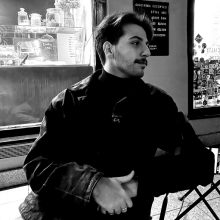
Llama 4 Scout AI: Performance Analysis Across Multiple Tasks
An in-depth analysis of Meta's Llama 4 Scout AI model performance across five diverse tasks, revealing impressive capabilities in content generation, calculatio...

A comprehensive analysis of Claude 3.7 Sonnet’s capabilities across diverse tasks, highlighting its strengths in research, reasoning, and content creation.
When tasked with creating comprehensive content about project management fundamentals, Claude 3.7 demonstrated powerful research and synthesis capabilities:

The resulting article showcased Claude 3.7’s ability to create well-structured, in-depth content with clear organization:
Processing time: ~3 minutes 44 seconds
Article length: 1,813 words
Reading complexity: College-level (Flesch-Kincaid Grade Level: 13)
Claude 3.7 excelled at a multi-part business calculation problem involving product pricing, costs, and revenue projections:
What’s notable is Claude 3.7’s business intelligence in providing multiple solutions rather than a single answer, demonstrating contextual understanding beyond pure calculation. The model recognized that business problems often have multiple valid approaches and provided appropriate rounding for real-world application.
Processing time: 22 seconds
When asked to create a 100-word summary of an article on AI reasoning, Claude 3.7 demonstrated exceptional information processing and distillation:
Processing time: ~5 seconds

In comparing electric vehicles with hydrogen-powered cars, Claude 3.7 demonstrated sophisticated research and analytical capabilities:
The resulting 682-word analysis was nuanced and avoided simplistic conclusions, recognizing the complex dependencies in assessing environmental impact. The model correctly identified that “environmental superiority depends on factors like energy sources, application, and regional context.”
Processing time: ~2 minutes 56 seconds
When tasked with creative writing about a future world of electric vehicles, Claude 3.7 produced a cohesive 482-word narrative that balanced imagination with logical extrapolation:
Processing time: 43 seconds

This analysis reveals several important characteristics of Claude 3.7’s performance:
Claude 3.7’s performance across these diverse tasks suggests particular strength in applications requiring:
The model’s ability to balance depth with efficiency makes it particularly suited for knowledge work that requires both research and synthesis. The consistent quality across task types suggests Claude 3.7 can serve as a flexible cognitive assistant across multiple domains rather than excelling only in narrow applications.
From a development perspective, the variation in processing times reflects the different cognitive loads of various tasks, with information-gathering and synthesis requiring significantly more processing than direct calculation or creative generation.
As we continue to evaluate large language models like Claude 3.7, this type of cross-task analysis provides valuable insights into both capabilities and limitations, helping users and developers better understand how to effectively leverage these AI systems for complex cognitive work.
The analysis covered content generation, mathematical calculation, summarization, comparative analysis, and creative writing to assess Claude 3.7 Sonnet’s versatility and performance.
Claude 3.7 uses a multi-step research approach, synthesizing information from multiple sources to produce structured, in-depth, and logically organized content with professional tone.
Processing times vary: simple calculations and summarization take 5–22 seconds, creative writing about 40 seconds, while research-intensive comparative analysis and comprehensive content generation take 3–4 minutes.
Claude 3.7 is particularly strong in research-based content creation, analytical comparison, mathematical problem-solving, information distillation, and creative content generation with logical structure.
Arshia is an AI Workflow Engineer at FlowHunt. With a background in computer science and a passion for AI, he specializes in creating efficient workflows that integrate AI tools into everyday tasks, enhancing productivity and creativity.

Start building smart chatbots and AI tools effortlessly with FlowHunt’s intuitive platform. Connect blocks, automate workflows, and turn your ideas into reality.

An in-depth analysis of Meta's Llama 4 Scout AI model performance across five diverse tasks, revealing impressive capabilities in content generation, calculatio...

Explore the advanced capabilities of the Claude 3 AI Agent. This in-depth analysis reveals how Claude 3 goes beyond text generation, showcasing its reasoning, p...

Explore the advanced capabilities of Claude 3.5 Sonnet as an AI Agent. This deep dive reveals how it goes beyond text generation, showcasing its reasoning, prob...